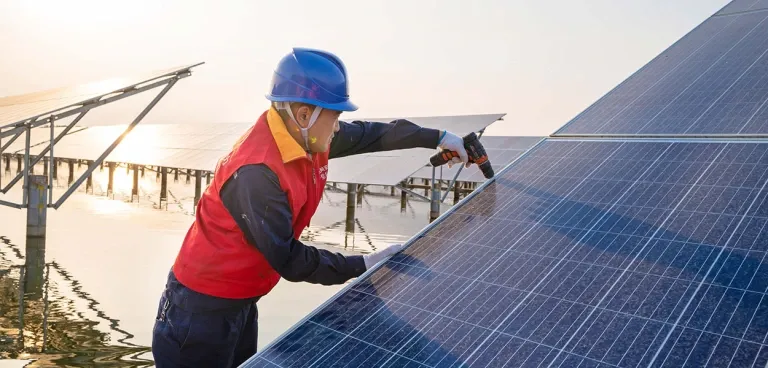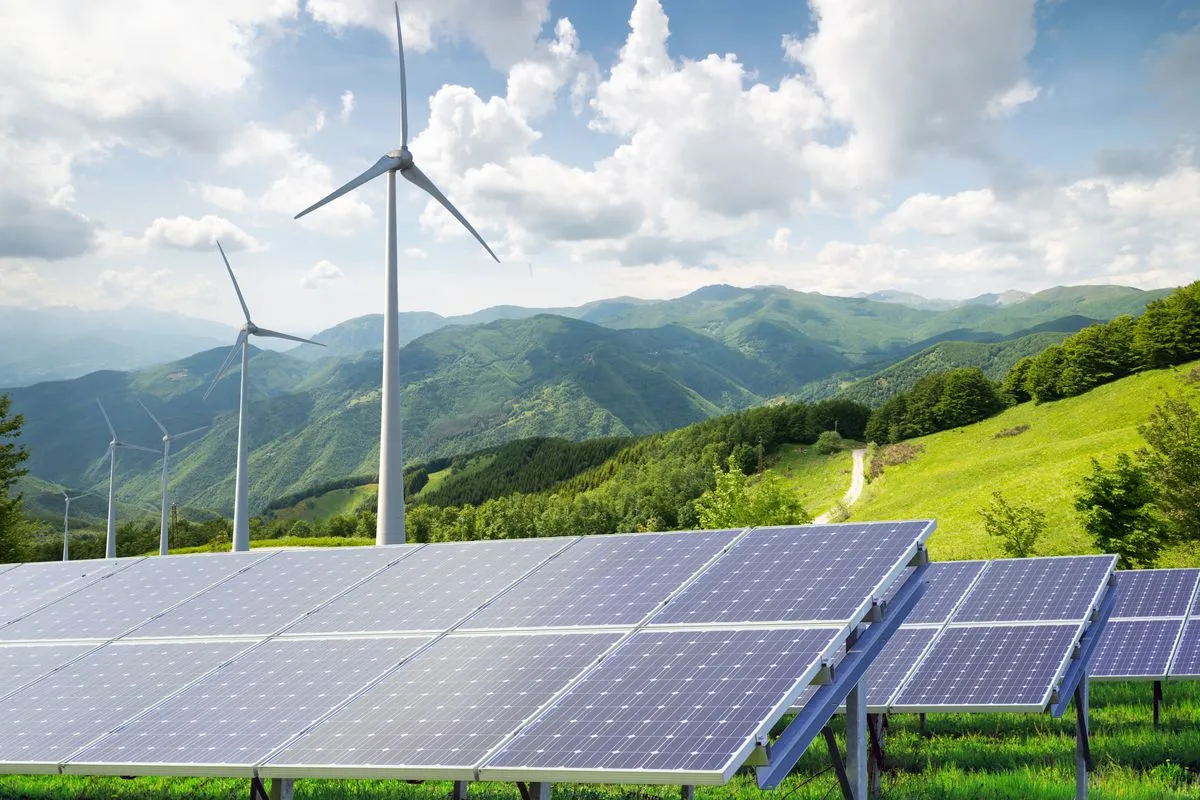Table of Contents
Miles Pollard
Miles Pollard is an economic policy analyst with the Center for Energy, Climate, and Environment at The Heritage Foundation . http://www.heritage.org/
Behind those harmless-looking solar panels harnessing the sun’s power lies a disturbing secret: Roughly 80 per cent of solar components are manufactured in China using slave labor.

Not only have the buyers of solar panels been indirectly funding companies that use slave labor, but American taxpayers also have subsidized almost $37 billion in purchases between 2016 and 2022.
Globally, even international organizations such as the United Nations and the European Union have begun to voice concerns about forced labor being used in China.
The US Department of Labor has created a 116-page report on goods that have been tainted with forced labor, and the State Department has created reports specifically about the use of forced labor in renewable energy supply chains.
Our current path presents an ethical conflict, pitting the climate lobby’s objectives against our nation’s moral compass. The Center for Strategic and International Studies, a nonpartisan think tank, estimates that more than 1 million minorities, chiefly the Uyghurs, Kazakhs, and Kirgizs, have been subjected to mass detention, pervasive surveillance and forced labor – a brutal reality that starkly contrasts with the shiny promise of clean energy.
In its bid to dominate solar panel production, China has forced these “surplus workers” to toil in state-subsidized, coal-fired power plants and four of the five largest polysilicon factories. Using this exploitative labor system and coal power plants, China’s share of global polysilicon production surged from 26 per cent in 2010 to 82 per cent in 2020, while America’s share declined from 35 per cent to five per cent over the same period.
Today, China uses slave labor to manufacture 79 per cent of polysilicon, 97 per cent of wafers, 75 per cent of modules, and 85 per cent of solar cells.
While America debates what to do about this humanitarian crisis, an Environmental Protection Agency study calculated that the cost of solar photovoltaic, or PV, units would surge by 30 per cent to 40 per cent without components sourced from labor in China, underscoring the industry’s reliance on Xinjiang’s slave labor force.
Furthermore, the International Energy Agency has estimated that to achieve net-zero emissions by 2050, global polysilicon production must triple by 2030.
This can only encourage China to draft more of the 12 million ethnic minority citizens in Xinjiang into these factories to meet the growing demand.
Amid this ethical conundrum, the United States has taken a firm stand against imports potentially linked to forced labor. The bipartisan Uyghur Forced Labor Prevention Act presumes any goods originating from Xinjiang are products of forced labor unless proved otherwise. The onus, therefore, lies with US companies to provide clear and convincing evidence that their imports from Xinjiang were not produced using forced labor.
To help businesses comply with the law, the Forced Labor Prevention Act has created an entity list of solar panel component companies that have been caught using slave labor. China has also been caught using slave labor in chemical and textile companies in Xinjiang, which have been added to the list this year.
The Solar Energy Industries Association, an American association of more than 1,000 companies, has pledged to oppose this use of slave labor in the industry and verify the authenticity of the solar components.
But according to the Breakthrough Institute, the association’s “traceability protocol only covers the commodity chain between metallurgical-grade silicon and completed solar PV modules” and neglects to follow the Uyghur Forced Labor Prevention Act’s guidelines to include the supply chains of quartz, aluminum and solar PV cover glass.
Therefore, buyers can’t rely on the association’s certification alone.
In response to the ban on exports from Xinjiang, Chinese shadow media have manufactured protests in the US on various social issues, according to the cybersecurity firm Mandiant. Chinese companies have also engaged in “transshipping” by setting up shell companies in Southeast Asian ports to have their solar components falsify their country of origin and bypass US sanctions.
In August, the US Commerce Department’s investigation found that Cambodia, Malaysia, Thailand, and Vietnam were harboring these suspected companies and listed the offending companies on its website.
President Joe Biden, however, has blocked and vetoed attempts by both the Commerce Department and Congress to prevent companies such as BYD, Trina Solar, Vina Solar, and Canadian Solar from “transshipping” the solar components through these countries. Collectively, these four countries account for 80 per cent of US panel supplies.
The policy is clear. There should be no opportunity for Chinese goods made with slave labor to enter American markets. China has been dominating the solar market by outcompeting Western companies by using state-sponsored slave labor and state-subsidized coal power. Even worse, US taxpayers have paid almost $37 billion to subsidize purchases of these solar panels.
Although Americans are indirectly complicit in allowing these goods to be purchased, Biden is giving illegal shell companies smuggling these goods a pass because, he says, “We cannot afford to create new uncertainty for American businesses.”
Perhaps we should give these companies the certainty that the goods they sell aren’t being made by slaves.
This commentary originally was published by The Washington Times.
Read more informative articles at The Daily Signal http://dailysignal.com/.
Reprinted from PA Pundits – International.









